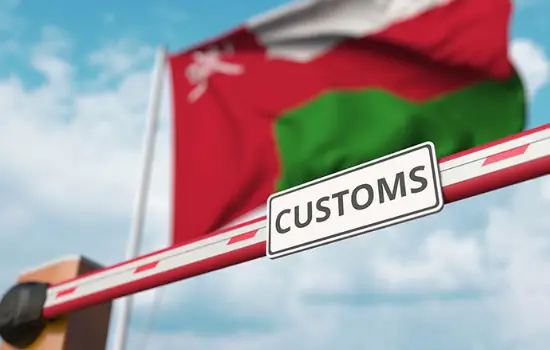Taxes and Customs Duties in Oman

procedures and financial requirements of this process is essential for all economic operators and traders. In Oman, taxes and customs duties are paid according to specific regulations and defined steps, and companies and investors are required to pay the relevant fees to the appropriate authorities.
In this article, we provide a comprehensive and practical explanation of how you can pay your taxes and customs duties in Oman, along with key insights in this area. If you’d like to learn more about the procedures, required documents, and related costs, stay with us until the end of this article.
An Overview of the Tax and Customs Duties Payment Process in Oman
In summary, taxes and customs duties in Oman are imposed on imported goods. However, if these goods are re-exported, part or all of the paid duties may be refundable, in accordance with Omani regulations and the Unified Customs Law of the Gulf Cooperation Council (GCC).
This process mainly applies to companies, commercial organizations, and government entities that can apply for customs-related services such as duty refunds or payments.
As a result, economic operators must be fully familiar with the applicable regulations and follow the necessary steps to take advantage of this benefit.
Key Steps for Paying Customs Duties in Oman
To pay customs duties in Oman, it is essential to follow several key steps. The first step involves submitting all relevant documents related to the import or export of goods to the customs authority. The customs service request process is carried out as follows:
Document Submission:
The concerned party, legal representative, or customs broker is required to present all documents related to the goods to customs officers upon arrival.
Obtaining Forms and Required Equipment:
After submitting the documents, the applicant can obtain the necessary forms and prepare any additional administrative items needed to proceed with the next steps.This process is carried out precisely and step-by-step to facilitate the procedure and avoid any potential delays or issues during the clearance of goods.
Key Steps for Paying Customs Duties in Oman
To pay customs duties in Oman, several essential steps must be followed. First, all required documents must be submitted to the Customs Authority. This process is typically carried out by the beneficiary, a legal representative, or a licensed customs broker.
In the initial step, the necessary documents are submitted to the customs officer at the point of entry. Once the documents are reviewed and approved, the applicant can obtain and complete the required forms and supporting paperwork to proceed with the payment process.
Timeframe for the Warehouse Establishment Process in Oman
To set up a new warehouse in Oman, applicants must submit their request to the relevant authorities at least one month prior to the start of operations. However, it is not possible to define an exact timeframe for the entire process, as it can vary depending on several factors, including the type of goods, scale of operations, and administrative reviews.
Therefore, it is recommended to submit applications with the utmost accuracy and as early as possible to minimize the risk of delays.
Required Documents and Procedures for Customs Clearance in Oman
To carry out any customs procedure and clear goods in Oman, providing valid documents is absolutely essential. In addition to the Delivery Order (D/O) and documents related to the value of the goods, other supporting documents must also be submitted along with the customs declaration at the time of clearance. Some of the most important required documents and forms include:
Customs Declaration from Country of Origin or Neighboring Countries:
For goods originating from neighboring countries or transported via their land borders and ports.Bill of Lading:
Issued by the carrier or shipping agent for shipments arriving through seaports.Air Waybill or Road Freight Manifest:
For goods imported via air or land.Arab Transit Declaration:
Required for goods entering Oman from non-neighboring Arab countries.Vehicle Ownership Document (for used vehicles):
Pertains to vehicles registered in the exporting country.Certified Invoice or Purchase List:
Must include detailed information such as quantity, type, markings, numbers, gross and net weight, name of sender and recipient.Valid Certificate of Origin:
Prepared in accordance with international regulations and verified by the relevant authorities.Exit Permit from Free Zones:
For goods entering Oman through free trade zones.
If any of the essential documents such as the invoice or certificate of origin are missing, the clearance process will require either full cash payment or submission of a bank guarantee.
Additionally, if the applicant is able to complete and submit the required documents within 90 days of payment, the guarantee will be refunded.
Required Documents for Processing Export Requests in Oman
To pay taxes and customs duties and carry out exports from Oman, it is essential to prepare complete and valid documentation. The documents required for submitting and processing an export request include:
Official Invoice for Exported Goods
Transport Bill of Lading:
If transportation is by sea, a valid sea freight bill of lading must be provided by a certified shipping agent. For air exports, an air waybill issued by the airline is required.
Taxes and Customs Duties for Imports and Exports in Oman
The amount paid for taxes and customs duties is determined based on the type of goods and the destination. Some key points in this regard include:
Imported Goods:
Customs duties are determined according to the Unified Customs Tariff, with exemptions applicable in certain cases. Generally, 5% of the CIF value (cost, insurance, and freight) is charged, plus 1 OMR for the customs declaration service fee.Special Goods:
For certain products such as alcoholic beverages and pork, customs tax is calculated at 100% of the value. Specific customs taxes also apply to tobacco products according to an approved schedule.Goods Originating from Arab Countries:
Under the trade agreement with Arab nations, goods with Arab origin are exempt from customs tax.Exported Goods:
Normally, no customs tax is charged on exported goods. Only a 1 OMR fee for the customs declaration is required.Licensed Warehouses:
Holders of licensed warehouses (RO 200 license) must pay an annual fee for storage and licensing.Temporary Transit:
Imported goods in temporary transit are exempt from customs taxes, but the applicant must provide a bank guarantee equal to 5% of the value of the goods until re-export is confirmed.
By complying with these requirements and preparing the necessary documentation, the process of paying taxes and customs duties in Oman becomes smoother, enabling trouble-free export and import operations.
If you need expert consultation or have any questions, our team of specialists is ready to assist you.
Source: Oman Government Services Portal (Official Website)

